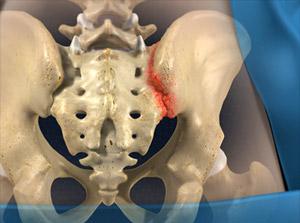Sacroiliac Joint Injection
A Sacroiliac (SI) Joint Injection is a minimally invasive procedure used to diagnose and treat pain originating from the sacroiliac joints. These joints are located at the base of the spine, where the sacrum meets the iliac bones of the pelvis. When these joints become inflamed or irritated due to injury, arthritis, or other degenerative changes, they can cause pain in the lower back, buttocks, and legs. An SI joint injection delivers a combination of corticosteroid and local anesthetic directly into the joint to reduce inflammation and alleviate pain.
Sacroiliac Joint Injection can be utilized as a treatment for:
-Back Pain
-Leg & Buttock Pain
Sacroiliac Joint Injection
This injection procedure is performed to relieve pain caused by arthritis in the sacroiliac joint where the spine and hip bone meet. The steroid medication can reduce swelling and inflammation in the joint.
What to Expect for the Treatment?
The SI joint injection is performed as an outpatient procedure, typically under local anesthesia. Patients are positioned on their stomachs, and the doctor uses fluoroscopy (live X-ray) to precisely guide the needle into the sacroiliac joint. Once the needle is in place, a contrast dye may be injected to confirm the needle’s position, followed by the corticosteroid and anesthetic solution.
The entire procedure takes about 20-30 minutes, and patients can usually return home the same day.
Recovery and post-treatment care
Most patients experience relief within a few days, though it may take up to a week for the full effects to become noticeable. The duration of relief varies; for some, the benefits last for several months, while others may require additional injections to maintain relief. After the injection, patients are advised to avoid strenuous activities for 24-48 hours but can gradually resume their normal routine thereafter.

Interested in our medical services? We’re here to help!
We want to know your needs exactly so that we can provide the perfect solution. Let us know what you want and we’ll do our best to help.
